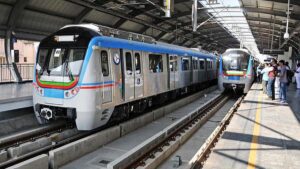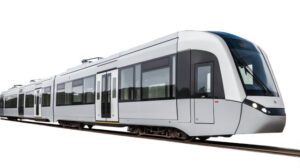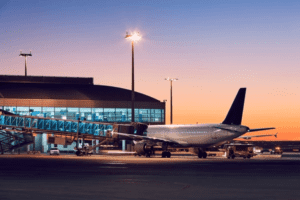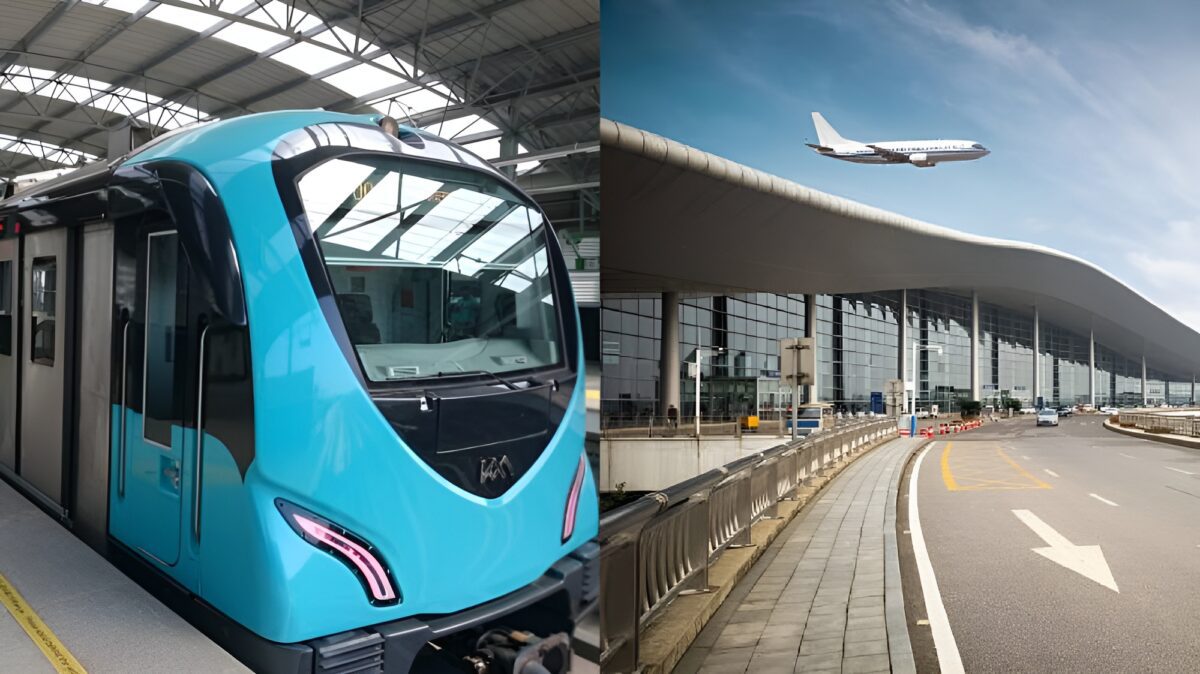
Union Cabinet Greenlights Metro and Airport Projects Worth Over ₹33,000 Crore
Contents
- 1 Union Cabinet metro airport projects
- 1.1 Union Cabinet Greenlights Metro and Airport Projects Worth Over ₹33,000 Crore
- 1.1.1 Metro Rail Projects: Transforming Urban Infrastructure
- 1.1.2 Innovative Financing for Metro Projects
- 1.1.3 Addressing Airport Capacity Issues: New Civil Enclaves at Bagdogra and Bihta
- 1.1.4 India’s Metro Revolution: A Growing Network
- 1.1.5 Conclusion
- 1.1.6 Frequently Asked Questions (FAQs)
- 1.1.6.1 1.What metro projects have been approved by the Union Cabinet?
- 1.1.6.2 2.What is the cost of the Bengaluru Metro Rail Project Phase-3?
- 1.1.6.3 3.How will the Thane Metro project improve connectivity?
- 1.1.6.4 4.What areas will the Pune Metro Phase-1 extension cover?
- 1.1.6.5 5.What innovative financing methods will be used for these metro projects?
- 1.1.6.6 6.Why is a new civil enclave being developed at Bagdogra Airport?
- 1.1.6.7 7.What is the estimated cost of the new civil enclave at Bihta, Patna?
- 1.1.6.8 8.How many cities in India have metro rail systems today?
- 1.1.6.9 9.What is the significance of these infrastructure projects?
- 1.1.6.10 10.When are these metro projects expected to be completed?
- 1.2 Union Cabinet metro airport projects
- 1.3 Adani Group’s Financial Position and Liquidity Management: An In-depth Analysis
- 1.1 Union Cabinet Greenlights Metro and Airport Projects Worth Over ₹33,000 Crore
Union Cabinet metro airport projects
Union Cabinet Greenlights Metro and Airport Projects Worth Over ₹33,000 Crore
The Union Cabinet of India recently sanctioned major infrastructure projects, including metro rail developments in Bengaluru, Thane, and Pune, and new civil enclaves at Bagdogra Airport (West Bengal) and Bihta, Patna (Bihar). These projects, valued at over Rs 33,000 crore, are expected to significantly enhance urban infrastructure and address the growing demands on airport capacity in these regions. The metro projects alone account for Rs 30,000 crore and are scheduled for completion by 2029, while the airport projects are budgeted at nearly Rs 3,000 crore.


Metro Rail Projects: Transforming Urban Infrastructure
The Union Cabinet’s approval of key metro rail projects in Bengaluru, Thane, and Pune marks a significant step in transforming urban infrastructure across these cities. Union Railways Minister Ashwini Vaishnaw, during a briefing after the Cabinet meeting, highlighted the importance of these projects in enhancing the urban transportation network. With a combined budget of Rs 30,000 crore, these projects are expected to be completed by 2029, providing much-needed relief to the congested urban areas.
Bengaluru Metro Rail Project Phase-3
Bengaluru, often referred to as the Silicon Valley of India, is set to benefit immensely from the Cabinet’s decision to develop two new corridors as part of the Bengaluru Metro Rail Project Phase-3. The project will span 44.65 kilometers and include 31 stations, at a cost of Rs 15,611 crore. Upon completion, Bengaluru will have a comprehensive metro network covering 220.20 kilometers, further cementing its status as a leading tech hub with robust urban infrastructure.


Thane Metro: Enhancing Connectivity on Mumbai’s Periphery
In Thane, a new 29-kilometer metro corridor has been approved, which will run along the western periphery of the city, bordered by the Ulhas River and the Sanjay Gandhi National Park. This project, estimated to cost Rs 12,200 crore, will include 22 stations and is designed to improve connectivity in one of Mumbai’s fastest-growing suburbs. The metro line will play a crucial role in easing traffic congestion and providing efficient public transportation for the city’s residents.
Pune Metro Phase-1 Extension
Pune, another major city in Maharashtra, will see an extension of its Metro Phase-1 project. The Line-1B extension, spanning 5.46 kilometers, will include three underground stations connecting key areas such as Market Yard, Bibwewadi, Balaji Nagar, and the Katraj suburbs. This extension, with a budget of Rs 2,954.53 crore, is expected to significantly enhance connectivity in Pune, providing residents with a faster and more convenient mode of transportation.


Innovative Financing for Metro Projects
To finance these ambitious metro projects, the government plans to employ innovative financing methods. These include selling station naming and access rights to corporate entities, monetizing assets, and utilizing the Value Capture Financing (VCF) route. Such strategies are expected to generate additional funds, reducing the financial burden on the exchequer while ensuring the timely completion of the projects.
Addressing Airport Capacity Issues: New Civil Enclaves at Bagdogra and Bihta
In addition to the metro projects, the Union Cabinet has also approved the development of new civil enclaves at Bagdogra Airport in West Bengal and Bihta in Patna, Bihar. These projects, with a combined budget of nearly Rs 3,000 crore, aim to tackle the saturation of capacity at existing airports and accommodate the increasing number of air travelers in these regions.


Bagdogra Airport, Siliguri, West Bengal
Bagdogra Airport, located near Siliguri in West Bengal, will see the development of a new civil enclave at an estimated cost of Rs 1,549 crore. This project is crucial for addressing the growing demand for air travel in the region, which serves as a gateway to the northeastern states and a popular destination for tourists visiting the hill stations of Darjeeling and Sikkim.
Bihta Civil Enclave, Patna, Bihar
In Bihar, the new civil enclave at Bihta, Patna, is estimated to cost Rs 1,413 crore. This development is vital for alleviating the pressure on the existing Patna Airport, which has been struggling with capacity constraints due to the rising number of passengers. The new enclave will significantly enhance the region’s aviation infrastructure, making air travel more accessible and efficient for the residents of Bihar.


India’s Metro Revolution: A Growing Network
Union Railways Minister Ashwini Vaishnaw highlighted the rapid expansion of metro rail networks across India. Prior to 2014, only five cities in the country had metro rail systems. Today, that number has grown to 21, underscoring the government’s commitment to improving urban transportation. Union Cabinet metro airport projects, Infrastructure projects worth over Rs 2 lakh crore have been approved since the current government took office, reflecting its focus on building a modern and connected India.


Conclusion
The Union Cabinet’s approval of metro rail projects in Bengaluru, Thane, and Pune, along with new civil enclaves at Bagdogra Airport and Bihta, Patna, marks a significant investment in India’s urban and aviation infrastructure. Union Cabinet metro airport projects,These projects, totaling over Rs 33,000 crore, are expected to transform urban transportation, ease airport congestion, and support the country’s economic growth. As these projects move forward, they will play a crucial role in shaping the future of India’s cities, making them more connected, efficient, and resilient.
Frequently Asked Questions (FAQs)
1.What metro projects have been approved by the Union Cabinet?
A. The Union Cabinet has approved metro rail projects in Bengaluru, Thane, and Pune, with a combined budget of Rs 30,000 crore.
2.What is the cost of the Bengaluru Metro Rail Project Phase-3?
A. The Bengaluru Metro Rail Project Phase-3 is estimated to cost Rs 15,611 crore and will include two new corridors spanning 44.65 kilometers.
3.How will the Thane Metro project improve connectivity?
A. The Thane Metro project will run along the western periphery of the city, including 22 stations over 29 kilometers, enhancing connectivity in this rapidly growing suburb of Mumbai.
4.What areas will the Pune Metro Phase-1 extension cover?
A. The Pune Metro Phase-1 extension, also known as Line-1B, will cover 5.46 kilometers and include three underground stations connecting Market Yard, Bibwewadi, Balaji Nagar, and Katraj suburbs.
5.What innovative financing methods will be used for these metro projects?
A. The government plans to use innovative financing methods such as selling station naming rights, monetizing assets, and the Value Capture Financing (VCF) route to fund these projects.
6.Why is a new civil enclave being developed at Bagdogra Airport?
A. A new civil enclave is being developed at Bagdogra Airport to address the growing demand for air travel in the region and to alleviate capacity constraints.
7.What is the estimated cost of the new civil enclave at Bihta, Patna?
A. The new civil enclave at Bihta, Patna, is estimated to cost Rs 1,413 crore.
8.How many cities in India have metro rail systems today?
A. As of today, 21 cities in India have metro rail systems, up from just five in 2014.
9.What is the significance of these infrastructure projects?
A. These infrastructure projects are significant as they will transform urban transportation, address airport capacity issues, and support India’s economic growth.
10.When are these metro projects expected to be completed?
A. The metro rail projects in Bengaluru, Thane, and Pune are expected to be completed by 2029.





















3 comments